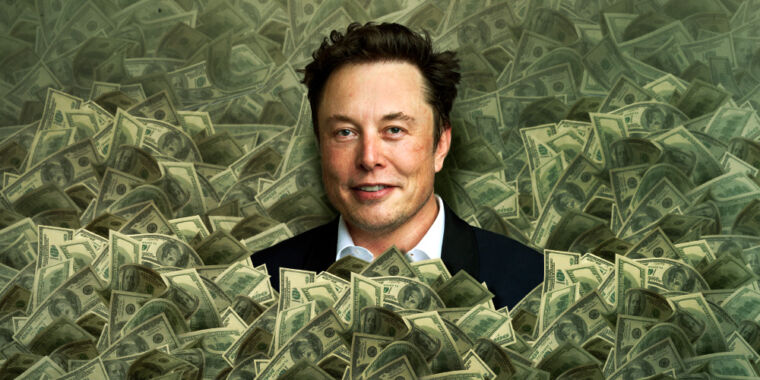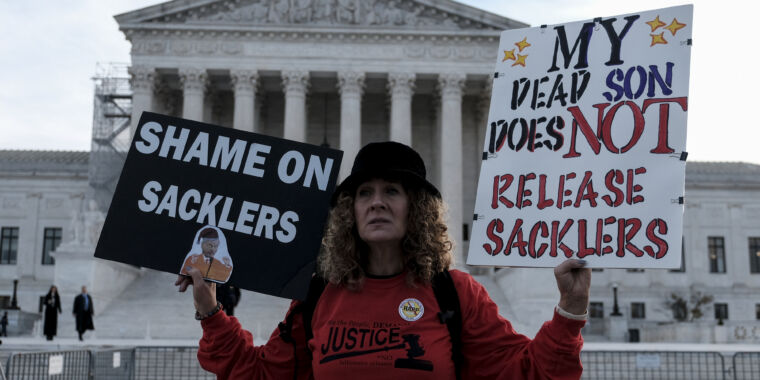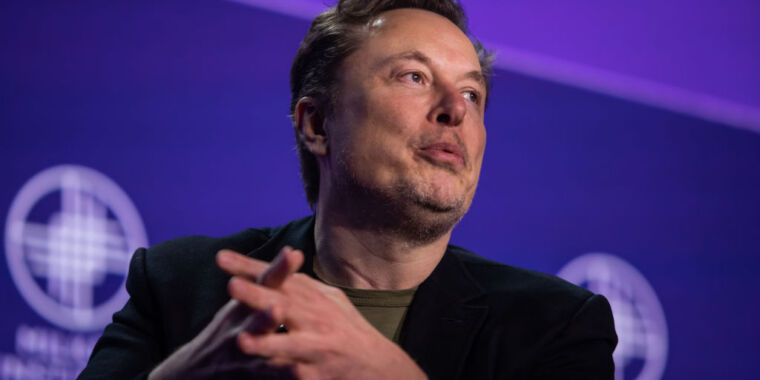Aurich Lawson / Duncan Hull / Getty
Tesla CEO Elon Musk’s $55.8 billion pay package was unfair to the electric carmaker’s shareholders and must be rescinded, Delaware Court of Chancery Judge Kathaleen McCormick ruled yesterday. Most of the board members were beholden to Musk or had compromising conflicts, she wrote.
“Swept up by the rhetoric of ‘all upside,’ or perhaps starry-eyed by Musk’s superstar appeal, the board never asked the $55.8 billion question: Was the plan even necessary for Tesla to retain Musk and achieve its goals?” McCormick’s ruling said.
The post-trial ruling found in favor of lead plaintiff and shareholder Richard Tornetta, concluding “that the compensation plan is subject to review under the entire fairness standard, the defendants bore the burden of proving that the compensation plan was fair, and they failed to meet their burden.”
McCormick’s ruling said that the “court orders rescission of the Grant as a remedy for Defendants’ fiduciary breaches.” This means the contract will be canceled. As McCormick explained, “The remedy of rescission ‘restore[s] the parties substantially to the position which they occupied before making the contract.'”
The ruling can be appealed to the Delaware Supreme Court. “Never incorporate your company in the state of Delaware,” Musk wrote yesterday in a post on twitter.com. “I recommend incorporating in Nevada or Texas if you prefer shareholders to decide matters,” he also wrote.
Tesla gave false, misleading info to shareholders
The Tesla board secured approval of Musk’s pay package from a shareholder vote, but the proxy information given to investors was “materially deficient” in McCormick’s judgment. The defendants—Musk and other Tesla board members—”were unable to prove that the stockholder vote was fully informed because the proxy statement inaccurately described key directors as independent and misleadingly omitted details about the process,” she wrote.
“In the final analysis, Musk launched a self-driving process, recalibrating the speed and direction along the way as he saw fit. The process arrived at an unfair price. And through this litigation, the plaintiff requests a recall,” she wrote.
Musk’s pay plan “is the largest potential compensation opportunity ever observed in public markets by multiple orders of magnitude—250 times larger than the contemporaneous median peer compensation plan and over 33 times larger than the plan’s closest comparison, which was Musk’s prior compensation plan,” the ruling said.
Musk already owned 21.9 percent of Tesla before the board approved the 2018 compensation plan. Musk thus had plenty of incentive to remain at Tesla as he “stood to gain over $10 billion for every $50 billion in market capitalization increase,” McCormick wrote in her analysis of why the $55.8 billion pay package was unnecessary.
“Musk had no intention of leaving Tesla, and he made that clear at the outset of the process and throughout this litigation. Moreover, the compensation plan was not conditioned on Musk devoting any set amount of time to Tesla because the board never proposed such a term,” she wrote.
McCormick is the same judge who oversaw the Twitter lawsuit that forced Musk to complete a $44 billion purchase he tried to get out of.





